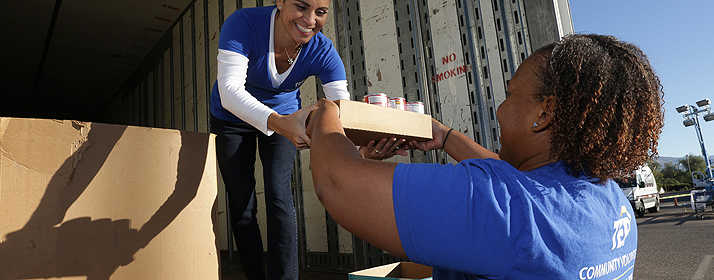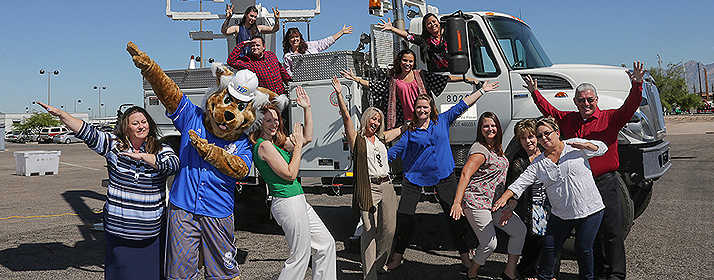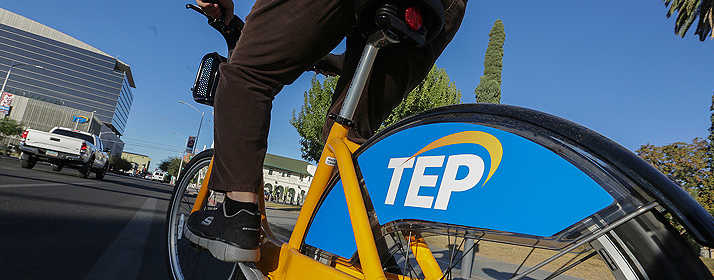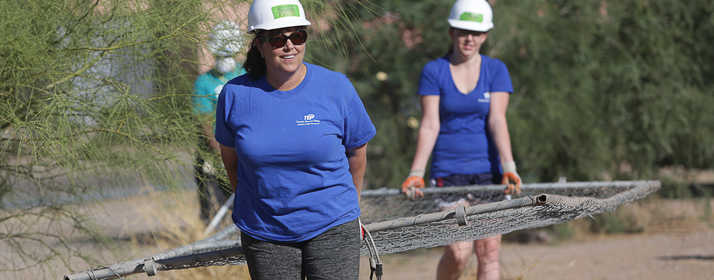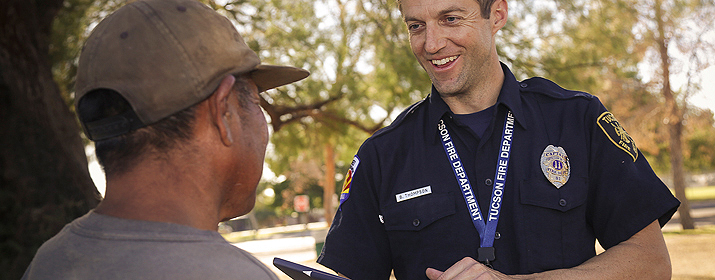
Tucson Electric Power is supporting a new Tucson Fire Department (TFD) program that connects non-emergency 911 callers with agencies that can best help them.
In February 2016, TFD launched the Tucson Collaborative Community Care program, or TC3, which is designed to reduce the number of non-emergency 911 calls from frequent callers in an effort to free up resources to respond to more serious life-threatening emergencies. The TC3 team helps match callers with community resources and agencies to help them manage the life crisis they might be facing.
Non-emergency callers who over-rely on emergency responders are referred to the small four-person TC3 team, which personally visits the caller to assess his or her overall well-being, living arrangements and basic needs.
While the program has been very successful, the required paperwork was bogging down efforts.
“Essentially, we were using a clipboard with a stack of up to eight forms that we would need to fill out for every person’s call,” explained TFD Captain Brian Thompson, who heads the TC3 unit. “We would come back to the office at the end of the day and need to enter all of that information into the computer.”
TFD sought assistance from TEP, which contributed $5,000 to purchase tablets and software that now allow the TC3 team to complete required forms electronically in the field. The digital forms can then be submitted to participating agencies, including the Pima Council on Aging, Adult Protective Services, the Department of Child Safety, the Community Food Bank of Southern Arizona, El Rio Community Health, Pima Animal Control and Cody’s Friends, among others.
The tablets also give the TC3 team access to real-time client information from online databases. This helps team members gather more comprehensive information about clients’ background, home environment and health so that they can match them with the most appropriate agencies for assistance.
“We are navigators. We navigate them to the right resources,” said Thompson. “Once we connect the individual with these agencies for help, we step back and watch what happens to make sure they stay on track.”
Since TC3 began, the number of repeat non-emergency 911 callers is significantly lower. Thompson said calls from 10 “super users” dropped from 352 to just 24 after his team’s intervention.
“We are so appreciative of TEP’s gift,” Thompson said. “Having these tablets has literally given us more time in our day by reducing our paperwork. We can see and help more people now.”

